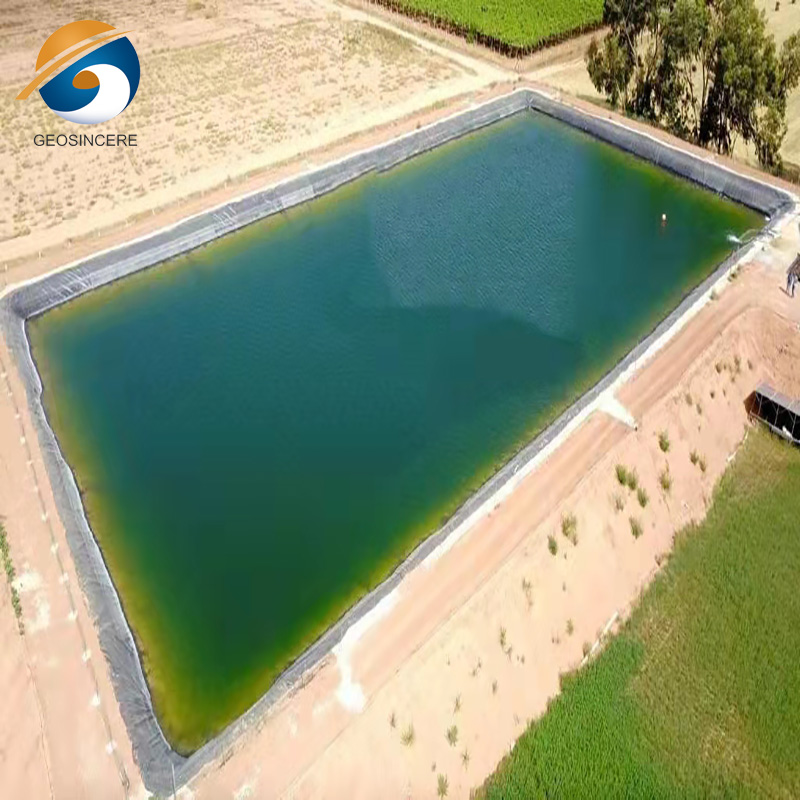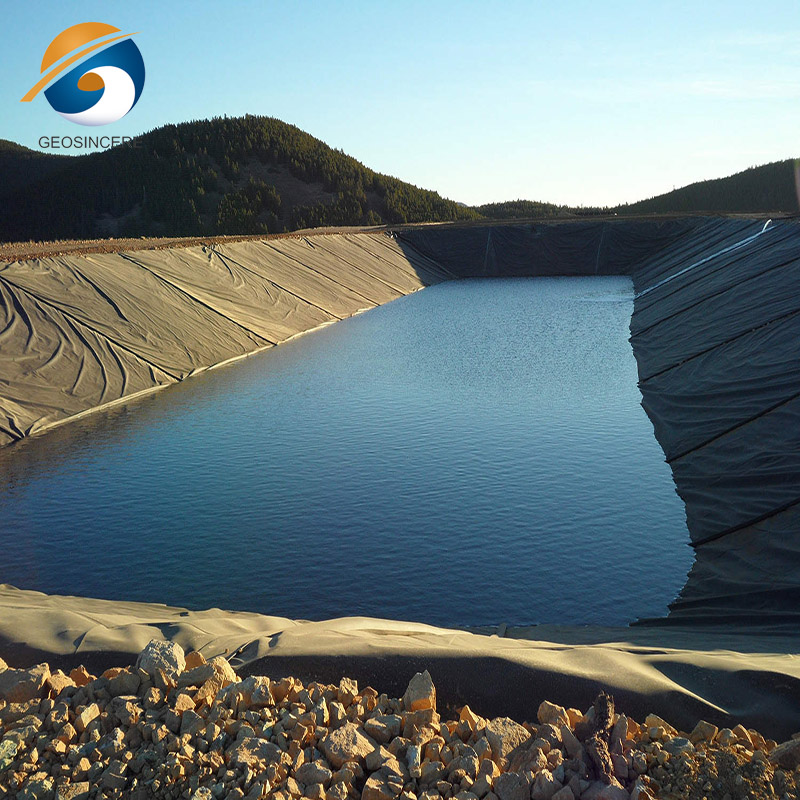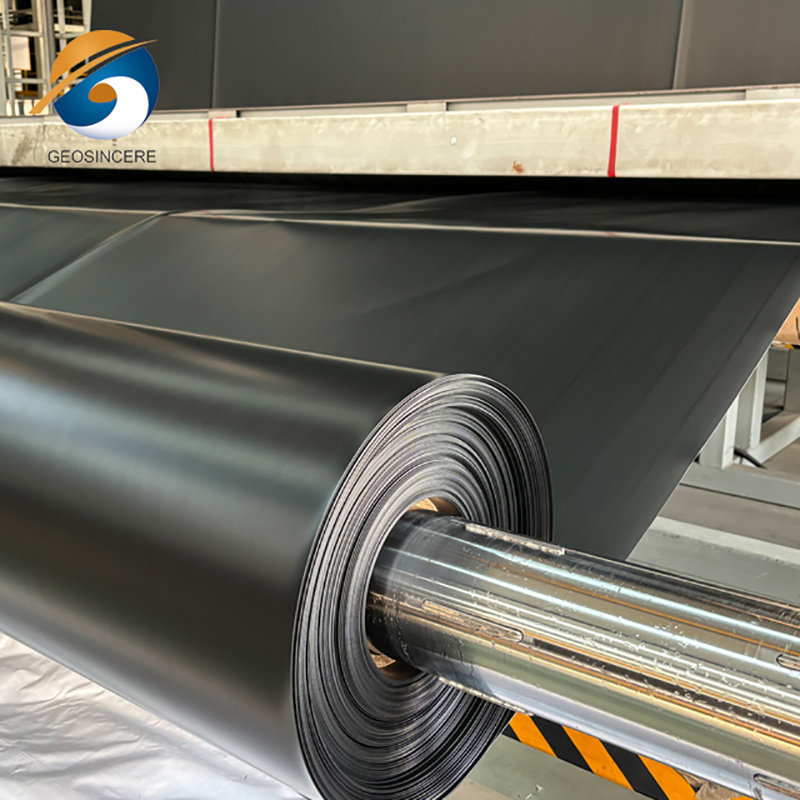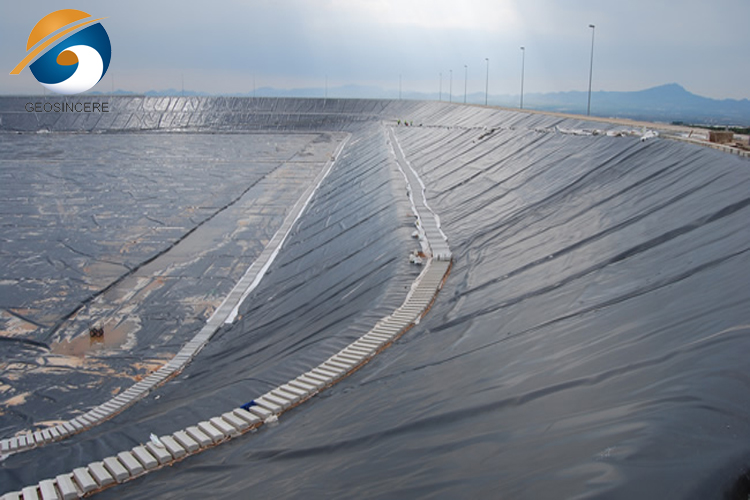40 mil LLDPE Geomembrane Liner for Water Tank
The increasing need for secure water storage infrastructure across agricultural, industrial and municipal sectors has driven strong demand for the 40 mil LLDPE geomembrane liner for water tank applications. As global water scarcity intensifies, more countries are investing in engineered containment systems capable of minimizing seepage, preventing contamination and ensuring long-term operational reliability. The shift from conventional soil-based storage to reinforced tank lining materials has created a rapidly expanding market for flexible liners, particularly those manufactured from linear low-density polyethylene.
According to industry projections, the global geomembrane market is expected to maintain steady growth over the next decade, supported by water management projects in Asia, Africa and the Middle East. These regions prioritize cost-effective, durable and easy-to-install solutions, making LLDPE a preferred material. Additionally, the adoption of engineered water storage systems for irrigation, aquaculture, mining and emergency reserves continues to elevate demand for high-performance tank liner materials.
Global Market Outlook for 40 Mil LLDPE Geomembrane Liner for Water Tank
The increasing need for secure water storage infrastructure across agricultural, industrial and municipal sectors has driven strong demand for the 40 mil LLDPE geomembrane liner for water tank applications. As global water scarcity intensifies, more countries are investing in engineered containment systems capable of minimizing seepage, preventing contamination and ensuring long-term operational reliability. The shift from conventional soil-based storage to reinforced tank lining materials has created a rapidly expanding market for flexible liners, particularly those manufactured from linear low-density polyethylene.
According to industry projections, the global geomembrane market is expected to maintain steady growth over the next decade, supported by water management projects in Asia, Africa and the Middle East. These regions prioritize cost-effective, durable and easy-to-install solutions, making LLDPE a preferred material. Additionally, the adoption of engineered water storage systems for irrigation, aquaculture, mining and emergency reserves continues to elevate demand for high-performance tank liner materials.
Key Market Trends and Industry Drivers
The rise in engineered containment systems has positioned the 40 mil LLDPE geomembrane liner for water tank projects as a critical material. Several factors contribute to this momentum. First, governments and private operators increasingly require leak-proof tank lining systems due to stricter regulations on water conservation and resource protection. Second, the global push toward climate resilience has accelerated the development of decentralized water storage systems, where geomembranes are used to line steel tanks, concrete reservoirs and modular liquid containment units.
Additionally, long-term reliability has become a top priority for industrial clients, especially in sectors such as mining and agriculture. LLDPE, with its balance of flexibility, tensile strength and crack resistance, is highly suitable for tanks subject to thermal expansion and shifting subgrades. Market research also indicates that international buyers demand liners that provide superior stress-crack resistance, consistent thickness control and traceable manufacturing standards.
Technical Specifications of LLDPE Geomembrane Liners
The 40 mil LLDPE geomembrane liner for water tank structures offers optimized mechanical and chemical properties suited for long-term containment. Standard specifications include:
• Thickness: 1.0 mm (40 mil), offering enhanced durability while maintaining flexibility
• Tensile Strength: Excellent strength-to-weight ratio for long-term stability
• Elongation at Break: High elongation to resist stress cracking in tank wall transitions
• Chemical Resistance: Stable against fertilizers, salts, wastewater and industrial effluents
• UV Resistance: Formulated for outdoor exposure in high-temperature regions
• Permeability: Extremely low permeability for secure potable and non-potable water storage
These characteristics make the liner suitable for both above-ground and in-ground tank designs, ensuring consistent performance across a wide range of environmental and operational conditions.
Material Composition and Structural Characteristics
The liner is manufactured from premium linear low-density polyethylene resins combined with anti-oxidants, UV stabilizers and long-chain additives that enhance stress-crack resistance. Its molecular composition provides superior flexibility compared to higher-density materials, allowing it to adapt to curved tank surfaces and uneven foundations. The engineered structure ensures reliable weldability, which is essential for creating leak-proof joints in circular or rectangular tank systems.
Manufacturing Process
1. Resin Preparation
Selected LLDPE resins undergo controlled processing to ensure consistency in melt index and purity.
2. Extrusion and Film Casting
Advanced extrusion or blown-film production lines transform the resin into uniform sheets with tight thickness tolerances.
3. Cooling and Stabilization
Rapid cooling stages improve dimensional stability and mechanical performance.
4. Surface Treatment and Inspection
Every batch undergoes tests for thickness uniformity, tensile strength, puncture resistance and seam compatibility before packaging.
Application in Water Tank Construction
The 40 mil LLDPE geomembrane liner for water tank use is designed to provide a fully sealed barrier between stored water and the tank substrate. It is commonly installed in steel panel tanks, concrete reservoirs, prefabricated modular tanks and agricultural storage units. Installation includes substrate preparation, base cushioning (when required), liner deployment, seam welding and anchoring along tank walls.
Its flexibility enables it to accommodate curved tank geometries without folding stress, while its chemical stability ensures safe storage of drinking water, recycled water and industrial liquids. In agricultural and remote locations, LLDPE liners enable cost-effective tank construction without requiring specialized structural coatings.
International Buyer Expectations and Procurement Preferences
Global buyers of geomembrane liners prioritize material certification, technical documentation and long-term reliability. Clients in the Middle East and Africa require high UV resistance due to intense sunlight, while customers in Asia prioritize competitive pricing and rapid delivery for large-scale water conservation projects. Industrial operators in Europe and North America often request standards-compliant documentation, including mechanical test reports, weldability data and traceability labeling.
Typical buyer pain points include inconsistent sheet thickness, limited installation guidance, insufficient QC records and difficulty obtaining custom dimensions. As a result, demand is rising for suppliers who provide complete support packages, including installation manuals, welding recommendations and engineering advice for water tank lining systems.
Conclusion and Strategic Recommendation
The 40 mil LLDPE geomembrane liner for water tank infrastructure remains one of the most dependable materials for modern water containment systems. Its balance of mechanical strength, flexibility and environmental resistance makes it suitable for diverse storage applications, from municipal reserves to agricultural irrigation tanks. As water security becomes a global priority, procuring high-quality, rigorously tested liners is essential for achieving long-term operational stability.
Buyers seeking detailed specifications, pricing and performance data are encouraged to request a complete technical dossier and material samples to support planning, engineering and procurement decisions.
Frequently Asked Questions (FAQ)
1. What tank types are compatible with 40 mil LLDPE liners?
They are suitable for steel, concrete, modular and earthen-supported water tanks.
2. Is a protective geotextile layer required under the liner?
A cushioning layer is recommended for rough or uneven foundations to prevent puncture risks.
3. Can LLDPE liners be used for potable water storage?
Yes. When produced with food-grade additives, they meet safety requirements for potable water systems.
4. Do you provide customized dimensions or prefabricated panels?
We offer customizable sheet size options and prefabricated panels based on project requirements.












